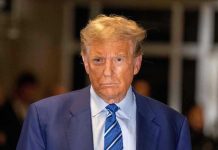
The FBI just arrested an NBA coach and six players in a gambling scheme with ties to organized crime, and Director Kash Patel says this takedown is merely the opening shot in a war against corruption infecting America’s favorite pastime.
Story Snapshot
- 31 defendants charged including Portland Trail Blazers coach Chauncey Billups and organized crime associates in a massive illegal gambling operation
- Six current and former NBA players arrested for alleged involvement in betting schemes and money laundering activities
- FBI Director Kash Patel issues stark warning that nationwide enforcement actions will expand beyond basketball
- Investigation reveals deep connections between professional sports figures and traditional organized crime families
- Federal authorities signal intent to pursue similar corruption across all major sports leagues
The Courtside Connection to Crime Families
On October 23, 2025, FBI Director Kash Patel stood beside the U.S. Attorney for the Eastern District of New York and delivered a message that should make every professional athlete nervous. The federal government had just dismantled an illegal gambling network that read like a Hollywood script, connecting NBA personnel directly to organized crime families. Among those charged: Portland Trail Blazers head coach Chauncey Billups, a former NBA champion and All-Star whose reputation now hangs by a thread alongside six current and former players whose names remain partially shielded by ongoing investigation.
This operation exposed something more troubling than isolated bad actors making poor decisions. Federal investigators uncovered systematic corruption where professional basketball figures allegedly partnered with organized crime associates to orchestrate betting schemes and launder money through underground networks. The charges represent months of wiretaps, financial tracking, and surveillance that painted a picture of sports integrity compromised at its foundation. Patel’s declaration that this represents only the beginning signals a fundamental shift in how federal law enforcement will approach sports-related criminal activity moving forward.
When Legalization Fails to Kill the Black Market
The irony cuts deep. America spent years debating whether legalizing sports betting would eliminate the shadowy operations that plagued professional athletics for decades. State after state authorized gambling, promising regulated markets that would starve underground bookmakers of oxygen. Yet here stands the FBI announcing charges that prove the opposite: illegal operations flourished even as legal betting expanded across the nation. The criminal networks simply adapted, using legitimate sports figures as conduits for schemes that legal operators could never touch.
This case echoes the 2007 scandal involving NBA referee Tim Donaghy, who bet on games he officiated and served federal prison time. But that incident involved a single rogue official. This investigation exposes something more insidious: current coaches and players allegedly collaborating with organized crime families, suggesting corruption has metastasized beyond isolated incidents into network operations. The distinction matters because it indicates systemic vulnerability rather than individual moral failure. Federal authorities clearly believe professional sports faces an existential threat to its integrity that demands aggressive intervention.
The Broader Target Beyond Basketball Courts
Patel’s choice of words deserves scrutiny. He did not announce a successful conclusion to an investigation. He warned this represents just the start of nationwide enforcement. That language suggests federal authorities possess evidence of similar corruption across multiple sports leagues and geographic regions. The focus on New York makes strategic sense given its status as both a professional sports hub and historical center for organized crime operations. But limiting enforcement to one city or one sport would contradict everything Patel signaled during his announcement.
The implications extend beyond criminal charges against individuals. Sports leagues now face pressure to tighten compliance systems and monitoring protocols that clearly failed to detect or prevent this alleged corruption. Team owners must confront uncomfortable questions about who they employ and what vetting processes allowed compromised individuals into positions of authority. Fans who invest emotional energy and financial resources supporting teams deserve assurance that outcomes reflect genuine competition rather than manipulated results serving criminal enterprises. The FBI essentially declared war on anyone corrupting professional sports for profit.
The Organized Crime Element Changes Everything
Strip away the sports celebrity angle and examine what really troubles federal prosecutors: organized crime families infiltrating legitimate enterprises. These criminal networks operate with sophistication that individual gamblers cannot match. They launder money through complex schemes, corrupt officials through carefully cultivated relationships, and insulate leadership from direct prosecution through hierarchical structures. The involvement of traditional organized crime families elevates this case beyond sports scandal into national security territory where federal authorities dedicate enormous resources.
The charging documents reveal allegations of money laundering alongside illegal gambling, indicating prosecutors believe defendants moved illicit proceeds through financial systems in ways that masked criminal origins. This transforms simple betting violations into federal conspiracy charges carrying substantial prison sentences. It also explains why the FBI Director personally announced these charges rather than delegating to lower-level officials. When organized crime penetrates professional sports, it threatens American institutions that billions of people trust. That threat demands visible federal response signaling zero tolerance for corruption regardless of celebrity status or public profile.
What Comes Next for Professional Sports
The NBA faces immediate crisis management challenges. Should the league suspend Chauncey Billups pending investigation outcomes? What about the six arrested players whose identities remain partially protected? How does the league reassure fans that game outcomes remain legitimate when federal prosecutors suggest corruption reached coaching staffs? Commissioner Adam Silver must balance legal considerations, competitive fairness, and public relations while federal investigation continues expanding. Every decision risks either appearing too lenient toward alleged criminals or rushing to judgment before courts determine guilt.
Other professional leagues cannot ignore these developments. If federal authorities found corruption in basketball, what prevents similar schemes in football, baseball, or hockey? The NFL already faces persistent questions about referee decisions and their impact on betting outcomes. Major League Baseball endured its own gambling scandals throughout history. Every league must now evaluate whether their integrity monitoring systems can detect the sophisticated corruption federal prosecutors just exposed in basketball. Expect significant changes in how professional sports organizations screen employees, monitor financial activities, and cooperate with law enforcement investigations.
The Message to Athletes and Criminals
Kash Patel sent two distinct warnings from that podium. To athletes: your fame and fortune provide no immunity from federal prosecution when you break laws. Celebrity status that once might have discouraged aggressive prosecution now makes examples more valuable for deterrence purposes. The FBI will invest resources necessary to build cases against high-profile targets precisely because those prosecutions send unmistakable messages. Professional athletes who believe their careers insulate them from consequences just learned otherwise in dramatic fashion with federal agents making arrests that will dominate sports media for months.
To organized crime: infiltrating professional sports invites federal scrutiny that criminal enterprises typically avoid. Underground gambling operations usually fly beneath federal radar, handled by state and local authorities if discovered at all. But corrupting legitimate sports leagues crosses lines that trigger massive federal investigations deploying wiretaps, financial forensics, and prosecutorial resources that overwhelm typical criminal defenses. The risk-reward calculation just shifted dramatically against anyone considering sports corruption as profitable criminal enterprise. Federal authorities clearly decided making examples through aggressive prosecution serves broader deterrence goals worth substantial resource investment.



